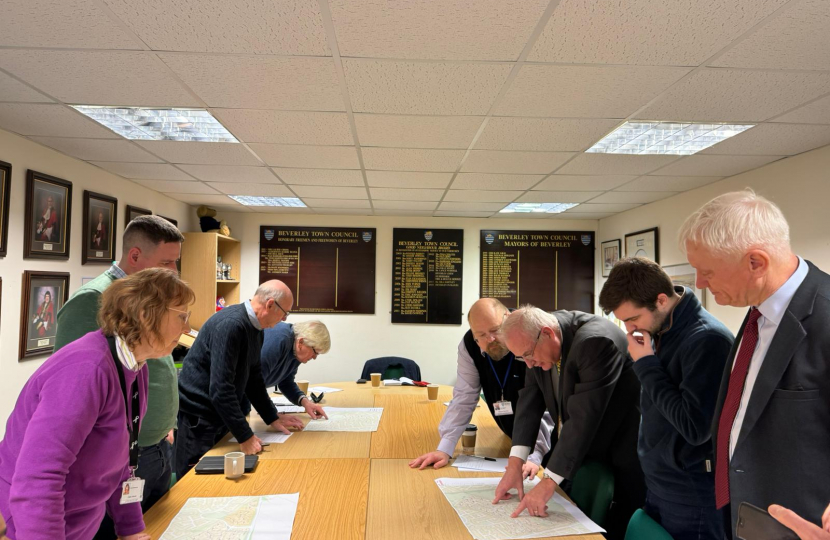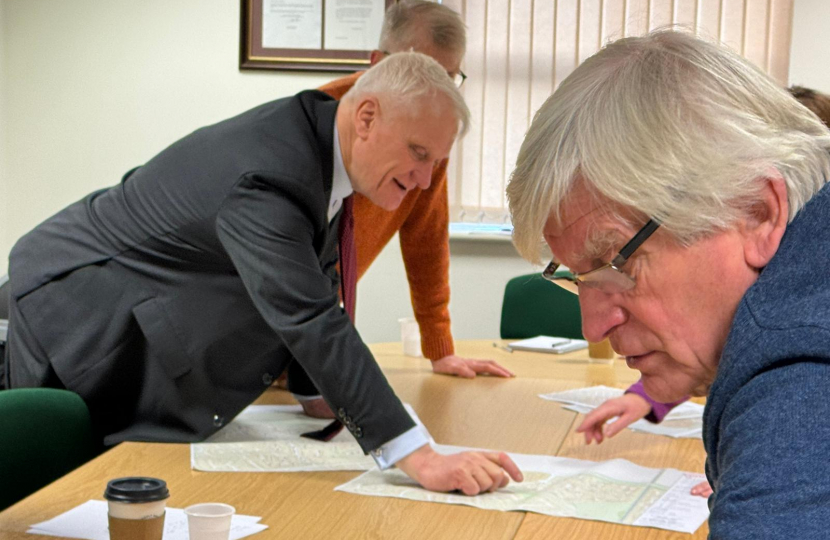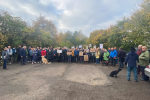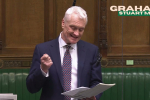Graham Stuart, Member of Parliament for Beverley and Holderness, brought together cross-party councillors from across Beverley and Molescroft to express their concerns to Connexin, the Hull-based fibre broadband provider, about its planned delivery of broadband by telegraph poles to the town.
After seeing other neighbourhoods have telegraph poles imposed on them without sufficient consultation, Graham convened the councillors around the table with Connexin to ensure the people of Beverley and Molescroft have their voices heard.
The meeting was chaired by Graham and was attended by the three St Mary’s Liberal Democrat Ward Councillors, Cllr Denis Healy, Cllr David Boynton and Cllr Linda Johnson; the Chairman of Molescroft Parish Council, Mike Hildyard; Dick Lidwell (Chairman) and Peter Stevens from the Beverley Civic Society; the Clerk of Beverley Town Council, Matt Snowden; and two representatives from Connexin.
Following Graham’s intervention, Connexin has started Ofcom’s complaints procedure against KCOM’s infrastructure sharing policies as part of their push to keep the number of poles in the town to the bare minimum. Where poles are deemed necessary, Connexin assured Graham and the councillors they will give local people at least a month’s notice before they are installed.
Graham has been working on this matter since September when he became aware of the protests in Hedon as a result of broadband wholesaler MS3’s roll-out of telegraph poles. He met with MS3, East Riding of Yorkshire Council and campaigners to try to find solutions to the erection of unnecessary and ugly telegraph poles. He also lobbied Sir John Whittingdale MP, the minister for broadband, and highlighted to Ofcom the sorry state of broadband competition in the East Riding.
In the last week he has held meetings with both Ofcom and the CEOs of KCOM, Connexin and MS3 to see what can be done to tighten up the regulations and guidelines to encourage the companies to work together for the interests of the residents.
Councillor Denis Healy (LD, St Mary’s) said: "The Connexin poles which are now appearing throughout Beverley and Molescroft are a massive concern for residents who are worried that Connexin and other operators have the right to site poles on their streets without planning permission.
“People need high speed, competitively priced broadband, but the problem is compounded because the operators are unable to agree on the sharing of underground infrastructure, and Ofcom need to intervene to sort this out.
“Ward councillors are working with Graham to bring Ofcom and the operators together to try and improve the situation, and the government needs to review whether it's time to change the law so that broadband operators have no choice but to work more closely with local councils in the siting of poles."
A spokesperson from Connexin said: "We are grateful to Graham Stuart MP, local councillors and individual residents who have provided feedback on our plans and who have also helped to bring to the attention of the Government and Ofcom the unique situation in Hull and the East Riding, where KCOM is still not effectively regulated to share infrastructure in the same way that Openreach is in this region and elsewhere in the UK.
"Although the law permits us to build our own network without having to consult, we work with the Local Authority and community representatives to try and ensure we make the best decisions possible on pole locations for all parties. In Beverley, for example, working with the council and the civic society, we have managed to avoid putting poles in the conservation area at the heart of the historic town."
Beverley and Holderness MP Graham Stuart commented: “We can’t have communities having telegraph poles imposed on them without any public discussion. I’m against these ugly and unnecessary poles, and the right place for broadband infrastructure is underground.
“That’s why I was pleased to get Connexin and local representatives together in a room to discuss the roll-out of telegraph poles in Beverley. I’m working to see what can be done to open access to KCOM’s underground ducts, but in the meantime we must give the community its say.”



